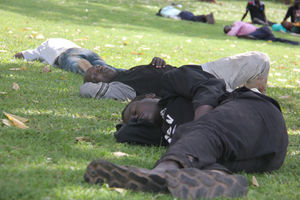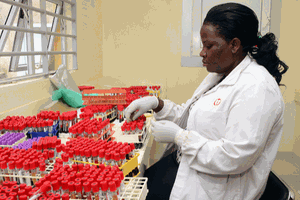
Can the economy save Uganda by enabling it to develop rules-based politics and an enlightened social order? The answer seems like no, judging by the rampant corruption and Stone Age violence by security services against the people, especially the Opposition.
Yet, we shouldn’t despair. There are scattered bright spots in Uganda’s economy. According to Bank of Uganda data, its gold exports surged more than 900 per cent in 2023, earning $2.3 billion, compared with just $201 million over the previous 12 months.
The increase was likely driven by exports from some new processors, the suspension of tariffs on gold exports, and increased “imports” of gold for processing. Uganda's position in the gold supply chain is that of a trade hub, a conduit, not a producer. If we take the 2023 figure of 38,878 tonnes as indicative of its export capacity, this far exceeds its production by a factor of over 12,000 times!
That places coffee as the country’s second most valuable export, earning $1.144 billion for the 2023/24 fiscal year. However, because all coffee exported is grown in Uganda, it leaves it as the highest-earning homegrown product.
Based on earlier data, fish (dried, salted, smoked) also showed up, earning around $69.5 million. Raw sugar brought in about $61.7 million. Cocoa beans $60 million, and cement is around $8.7 million.
What is striking here is that while Uganda’s economic crown jewels come from the soil or water, gold is particularly opaque, damaging the country’s transparency reputation. Then, while some of them are “processed”, the process is relatively simple: Cue drying and washing (coffee and cocoa beans), polishing (gold), mixing, squeezing, and running through a grinder (cement, sugar). We have no notable exports that require us to look up at a test tube held against a lightbulb.
In future, we will explore why we are here, but for now, this is reflected in government and social organisation in very specific ways. Consider for example that in 2023 Kenya exported pharmaceutical products valued at $165.8 million. Not among its top exports, but not bad. Also in the middle of Rwanda’s export earnings, were sanitary towels and baby diapers which, together with related products, earned $119.6 million.
For an institution like the Uganda Revenue Authority (URA) dealing with Uganda’s main exports is fairly easy and straightforward. If they want to check how much you have made and should pay tax on, it is enough for them to show up with a ruler, weighing scale, and a calculator app on their phones.
However, those won’t be as useful if you showed up at a pharmaceutical company to make sense of their products, or to understand what creates the value in a diaper – even though the latter two are not exactly rocket science. URA would have to be more sophisticated, and if it cracked it, it would life the scientific level at which it, and sections of the state, operate. Now imagine that Uganda had Africa’s biggest social media company, which essentially would be trading in algorithms, URA would have to raise its game 10 times higher to deal with them properly, and soon dozens of people with master's degrees and PhDs in computer science would be employed in its ranks.
At the production level, if you are a company drying or smoking fish, you don’t need someone with a Masters degree in food science. And you can hire your uncle’s son who dropped out of Primary School to be head fish smoker.
Your semi-literate niece can supervise the coffee drying; the brother of your clan head who failed the fitness to be recruited into the Uganda People’s Defence Force can be in charge of the lorry ferrying cement to Kenya.
However, if you have a pharmaceutical factory and are making insulin, or chemotherapy drugs, you will not allow them near the place. If your factory is based in Tororo and you hear that there is a brilliant chemist in Kisoro who is making basic cattle medicine at the back of his house, you will get on the road the next day and go and offer him a salary he can’t refuse to come and work for you. It would be your first time in Kisoro and its perilously windy roads, but then you will also get to see and appreciate the beauty and majesty of Kibaale forest.
Collectively, businesses acting this way would more likely embrace the diversity of the country, and help build a meritocratic society. The state, even when it is brutish, would function better as part of the adjustment needed to manage – and control – you. Besides, a scientist making insulin, who supports the ruling NRM, will not moonlight at night during heated elections to beat up NUP supporters like they were snakes on the roadside.
-The author is a journalist, writer, and curator of the “Wall of Great Africans”. X(Twitter)@cobbo3








